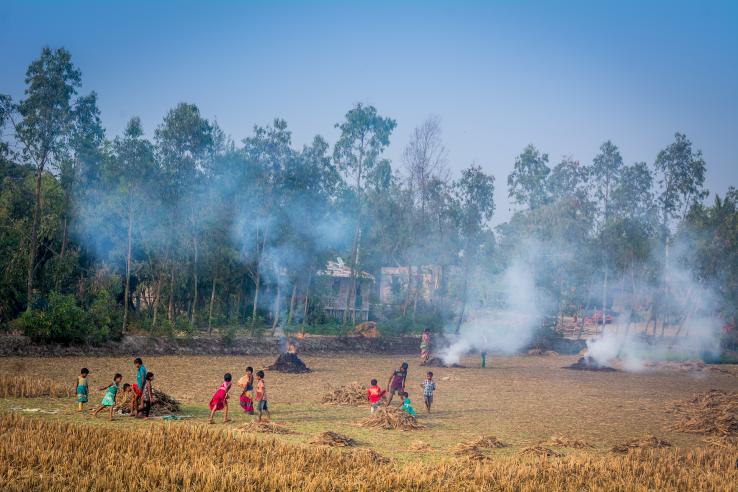When Evidence Meets Policy: Helping India’s State Governments Respond to Public Health Challenges

Nutrition and air pollution are two major public health challenges in India that require timely generation of evidence on how to shift behaviors and decision-making of key players. How can rigorous evidence help address these contemporary challenges?
Well-designed evaluations can answer policy-relevant questions on mechanisms underlying program impacts, and provide generalizable insights about strengthening policy design and implementation. Strong partnerships between implementers, researchers, and donors are critical to ensure evidence can be translated into scalable policy solutions.
This webinar will draw on two large-scale evaluations conducted in Punjab and Tamil Nadu addressing these challenges, and shed light on how policymakers and development stakeholders can formulate pathways to policy change.
Register to attend here >>
Researchers will reflect on the role that evidence generated from these evaluations has played in informing policy decisions.
Improving service delivery of the Integrated Child Development Services (ICDS) in Tamil Nadu
A large body of scientific evidence has established the central role of early childhood health and education in fostering lifetime well-being and economic success. In India, programs that promote early childhood development are delivered primarily through the Integrated Child Development Scheme (ICDS). ICDS is under-resourced, which often results in uneven quality, with many programs failing to provide supplementary nutrition, pre-school education, or essential health services.
J-PAL affiliated professor Karthik Muralidharan will discuss how interventions to improve ICDS quality in Tamil Nadu, such as the addition of an extra worker, or performance-based incentives for Anganwadi workers, can influence child nutrition and education outcomes.
Providing cash incentives to reduce crop residue burning in Punjab
The common practice of burning paddy stubble has been a major challenge in Punjab. Smoke emitted from stubble burning pollutes the air and imposes a major health toll in the local community as well as in the areas where the pollution disperses. Stubble burning contributes to high rates of pollution in North India, including in Delhi, the world’s most polluted city. The associated health and economic costs are very high.
J-PAL affiliated professor Seema Jayachandran will discuss the impact of providing farmers with financial rewards for not burning stubble, and how innovative structures of financial incentives can be useful for shifting farmers’ behavior.
This webinar, hosted by J-PAL South Asia’s Cash Transfers for Child Health (CaTCH) Initiative, is a part of its ongoing series titled, ‘Improving India's healthcare: Insights from six years of on-the-ground research.’
Speakers
Karthik Muralidharan
J-PAL Affiliated Professor and Co-Chair, J-PAL Education Sector; Tata Chancellor's Professor of Economics, University of California, San Diego
Seema Jayachandran
J-PAL Affiliated Professor and Chair, J-PAL Gender Sector; Breen Family Professor of Economics, Northwestern University
Amee Misra (Moderator)
Senior Economist and Policy Lead, UNDP India